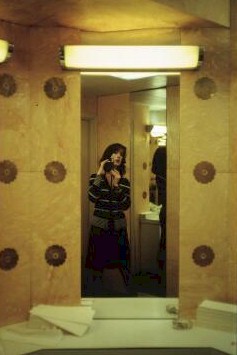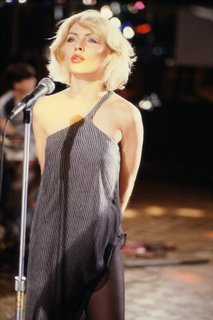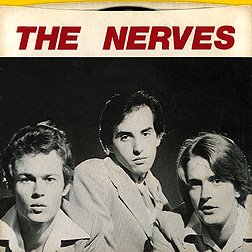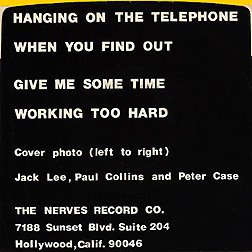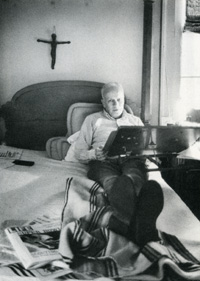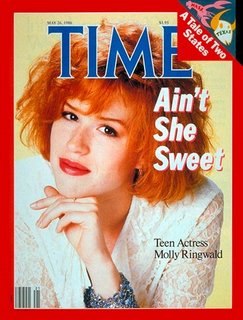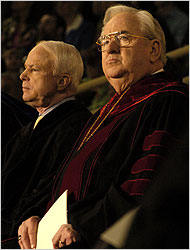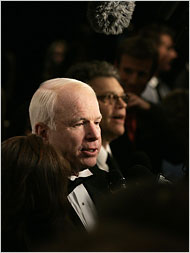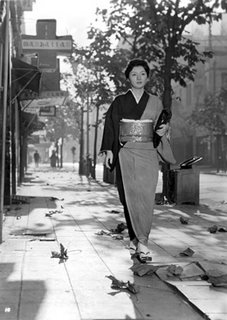
So a panel of judges convened by the Times has picked The Best Work of American Fiction of the Last 25 Years. Naturally, I've read hardly any of the books mentioned, because most of them were written by John Updike, Philip Roth, and Cormac McCarthy. See
here for a list of nominees and judges.
I've tried to read
Beloved, which won, a couple of times, but I can't get past the feeling, and I know this doesn't make me look good, that there's an axe being ground, and the prose is simulaneously too diffuse and arch at the same time. I read most of
Underworld when it came out--free copy from employer!--but then stopped because I was tired of it and I didn't think I was going to miss anything by not witnessing the ending, and the only thing I remember now is the baseball scene, which I've always thought was pretty amazing. I've read
Gilead but not
Housekeeping, which is wrong, I know, and it has been on my list for a long time. Though I have read
Jesus' Son and
Independence Day (the latter I just finished last week, phew!), and they're two of my favorite books. I guess I've been off reading the work of the judges: Paula Fox, Philip Lopate, Lorrie Moore, Cynthia Ozick, Thom Jones, Ethan Canin, Michael Chabon, Ben Marcus, Rick Moody, George Saunders, Liesl Schillinger. (Just kidding! Though if you read the NYTBR, you can't avoid her.) Why isn't Mary Gaitskill on the list of judges? Perhaps she and Foster Wallace (wisely?) stayed away from this sort of thing. I'd nominate Gaitskill's
Veronica, published last year, and Robinson's
Gilead for this list. Why not give her two? And Saunders. Saunders'
Pastoralia. Maybe Rick Moody's
The Ice Storm. Nicholson Baker's
The Mezzanine? Jim Lewis'
When the Tree Loves the Ax? Though I think Richard Yates'
Revolutionary Road, published in 1961 and nominated for the National Book Award, might be a more horrifying indictment of American suburbs, marriage, family, and work, than
The Corrections, and I think it's a lovelier novel, what about Franzen's big book?
I can see where those novels/fictions just might be too recent, though of course Roth’s 2004 book is nominated, and it's too soon to tell whether they're Great. Though I think they are. However, I am not Liesl Schillinger or Nell Freudenberger or Curtis Sittenfeld. But I'm sure not every one of those Roth novels hits it out of the park, people. Come on. Or the Rabbit novels (the first one was written in 1960, which seems to be bending the last 25 years rule). Several young men I know and admire like Cormac McCarthy, but I don't think I know any women who do. And that's all I can say about that.
Oh, Roth and Updike. Updike and Roth. My betes noir! They're each a leg on the colossus that...ok, that metaphor's gonna break down any minute now under the strain of making it work, so I'll stop. Now I've been talking to some friends lately about those two, because I still have not made my peace with them. Though I have friends who love Updike, no one I know my age carries a torch for Roth. They read him, but then they talk about him like some groping uncle that they have to put up with grudgingly year in and year out at the holidays. We're talking men and women. Also, it seems that Roth is using the same persona—essentially himself—in each book. Now, if I ever wrote a novel, I know for damn sure the heroine (and it would have a female protagonist, at least the first one) would be some sort of mouthpiece for certain of my thoughts and feelings. But every time I wrote? I’d hope not. Does fiction deserve to be praised so much and so widely when it’s pretty clear that it’s the author talking every single time out and it’s really only the story of a certain segment of the population? Now, my favorite writer list is admittedly pretty white, but whose America is Roth describing over and over again? A friend recently described Roth and Updike this way: "They're like really, really smart seventeen-year-olds. They're no different than incredibly sexually motivated young men, but they're propped up by apparatuses that make us take them seriously." Later in the conversation I believe he termed Roth “a marauding penis”.
By and large, I'd rather read novels written before 1981, and when I do, they're usually either written by citizens of the United Kingdom or written in the 19th and earlyish 20th centuries, and often both. It's a problem. Or is it? I have some shame about this.
I’d nominate these novels/fictions if I'd been asked. But they're not written by Americans, so I'd be disqualified. And two are written by men, so you know it's not just the feminism talking.
There's
Possession, which I read when I was a freshman in college because I was a Huge Dork. It's a great novel, full of astonishing tricks and voice-throwing and intelligence, but A.S. Byatt is British. It won the Booker in 1990. Scottish writer James Kelman's Joyce-like
How Late It Was, How Late won the Booker in 1994. Zadie Smith's 2000
White Teeth, though I agree with James Wood that it's more than a little touched with hysterical realism and that sort of bothers me. From Japan: Haruki Murakami's
The Wind-Up Bird Chronicle, published in 1997. Though Murakami, who loves Raymond Carver and American jazz and pop, might as well be American; he isn't revered in Japan the way he's beloved here. (That's him at the top.) Alice Munro's
Selected Stories, published in 1996. Canadian. Like Roth, she writes about the same thing over and over again--mothers, daughters, rural Canada--but Munro, and one could discuss how female this is or not, seems content to stand back in the shadows of omniscience, and you forget she's there while her characters run around making mistakes. All these fictions have, in varying degrees, wide scope, wild imagination, and heart. I know I toss that word around too much, and when you deal with the heart, you risk messing with sentimentalism, but bear with me. "I think there's something wrong with our hearts," my friend A. said to me the other night. Meaning Americans. I think there is, too. We don't like to treat of it. We want to be tough, ironic, distant, sickeningly cute, sexlessly sexual, abstract, violent, misogynist. And it shows up in our fiction, both filmic and otherwise. Though Richard Ford is not afraid of writing about the heart, of looking at its problems head on, and I was suprised to learn he got a Pulitzer in spite of it.
